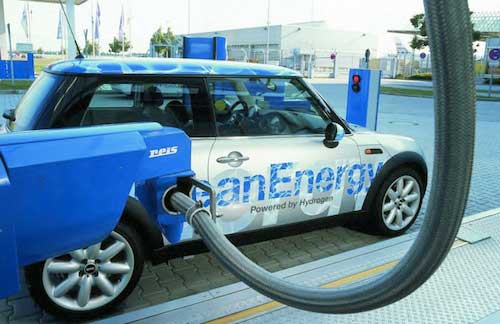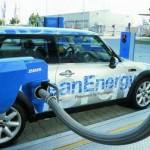
 Hydrogen is splitted ten times faster due to a research of the Argonne National Laboratory. This way hydrogen could become more useful in a carbon constrained future, because it can store energy.
Hydrogen is splitted ten times faster due to a research of the Argonne National Laboratory. This way hydrogen could become more useful in a carbon constrained future, because it can store energy.
Hydrogen shows up only in pairs of atoms and separating out into single atoms is currently such an energy intensive and expensive process that it isn’t cost effective for energy storage. Hydrogen fuel cells are very expensive nowadays.
As s senior chemist at Argonne, Nenad Markovic noted that, “People understand that once you have hydrogen, you can extract a lot of energy from it, but they don’t realize just how hard it is to generate that hydrogen in the first place.” Markovic led research at Argonne that has resulted in finding a cheaper, cleaner way to produce pure hydrogen.
Adding clusters of a metallic complex the team was able to split single hydrogen atom out of water molecules easier than doing so with only the platinum catalyst. The new catalyst combination drove the reaction at ten times the previous rate.
The Department of Energy’s Office of Science that includes Argonne National Lab, where this breakthrough was made, escaped a cut in funding level threatened.
Researchers had expected as much as 20% in cuts when the first House budget was proposed, and were relieved when it looked like just 6% cuts earlier this year.



